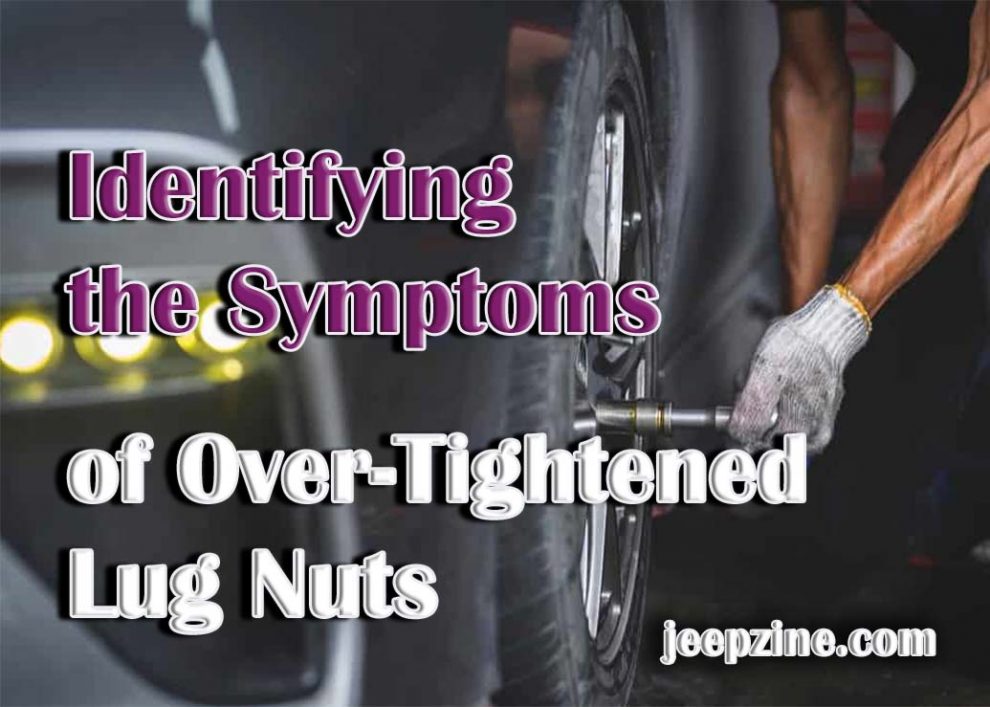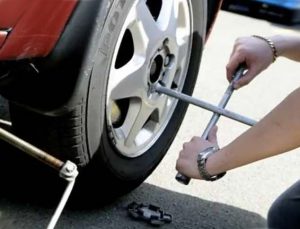Lug nuts secure the wheel of your car to the axle and are an important component in vehicle safety. Unfortunately, over tightening the lug nuts can have a drastic effect on both your car and tires. Knowing the signs of over tightened lug nuts is key to ensuring your car operates safely and optimally.
Signs That Your Lug Nuts are Over Tightened
-
Unbalanced Tire Wear – One of the most common signs that your lug nuts are over tightened is uneven tire wear. This is due to the fact that when lug nuts are too tight, they create excessive friction between the tire and wheel, which causes an unequal distribution of weight across all four tires. You may also see deeper grooves in one or more areas on each tire’s tread pattern if they’ve been over tightened as well.
-
Uneven Steering – Over tightened lug nuts also put extra pressure on steering components including linkages, bushings, and bearings which can cause erratic steering or alignment issues in certain vehicles like SUVs with independent suspensions or cars with live axles at each wheel hub assembly . If your car isn’t going straight when you let go of the steering wheel then it’s likely your lug nuts are too tight.
-
Difficulty When Removing or Installing Tires – Attempting to remove a tire with over tightened lug nuts can be extremely difficult as the extra friction created by the overly tight nuts will cause them to stick to the wheel hub instead of coming loose when you apply a wrench or socket. The same goes for when you’re tightening them back up, if they’re too tight it may be difficult or impossible to get them snugged down properly even with the use of a torque wrench.
How to Properly Tighten Lug Nuts
-
Use a Torque Wrench – The best way to ensure that your lug nuts are not over tightened is by using a torque wrench when tightening and loosening them. A torque wrench gives you more control over how much force is being applied, helping you avoid putting too much pressure on your lug nuts and potentially damaging your car’s wheels and tires in the process.
-
Pay Attention to Manufacturer Guidelines – It’s also important that you pay attention to manufacturer guidelines regarding how tight each lug nut should be secured on your vehicle; this information can usually be found in your owner’s manual or online if you don’t have access to a copy of the original.
Conclusion
Over tightened lug nuts can cause serious damage to your vehicle, so it’s important to pay attention to the signs that they’re too tight and use a torque wrench whenever possible. Following manufacturer guidelines is also key in ensuring that your lug nuts are properly secured without putting too much pressure on them. Taking these steps will help keep your vehicle running smoothly and safely for years to come.


 Uneven Steering – Over tightened lug nuts also put extra pressure on steering components including linkages, bushings, and bearings which can cause erratic steering or alignment issues in certain vehicles like SUVs with independent suspensions or cars with live axles at each wheel hub assembly . If your car isn’t going straight when you let go of the steering wheel then it’s likely your lug nuts are too tight.
Uneven Steering – Over tightened lug nuts also put extra pressure on steering components including linkages, bushings, and bearings which can cause erratic steering or alignment issues in certain vehicles like SUVs with independent suspensions or cars with live axles at each wheel hub assembly . If your car isn’t going straight when you let go of the steering wheel then it’s likely your lug nuts are too tight.


Add Comment